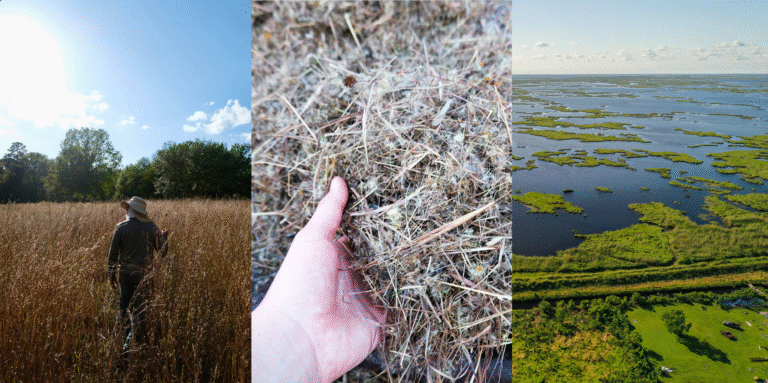Despite the scale and ambition of Louisiana’s Coastal Master Plan in addressing land loss and flood risk, it lacks explicit integration of climate mitigation strategies or emissions reduction targets that are increasingly urgent for the region’s survival. This disconnect represents a critical gap wherein the very plant procurement processes supporting restoration efforts could either contribute to or mitigate climate impacts—yet remain largely unexamined within official frameworks.
This project documents the socio-ecological networks of the plant trade in southern Louisiana, examining the diversity of nursery landscapes where plants are grown for publicly-funded coastal restoration projects. By investigating cultivation sites, growing practices, and sourcing networks, this research reveals how plant procurement for these infrastructural projects is responding to—or working against—the need for adaptive and climate-mitigating construction methods in this vulnerable region.
Where do plants in coastal infrastructure projects originate, and who tends them? What can these production landscapes teach us about their effects on local economies, ecologies, and labor dynamics? This investigation explores how intentional plant resource cultivation could create alternative approaches to environmental management in highly engineered coastal landscapes.
Through field research and semi-structured interviews with growers, this project aims to illuminate these largely unseen plant production sites and highlights the collaborative landscape management strategies emerging in response to environmental change.

